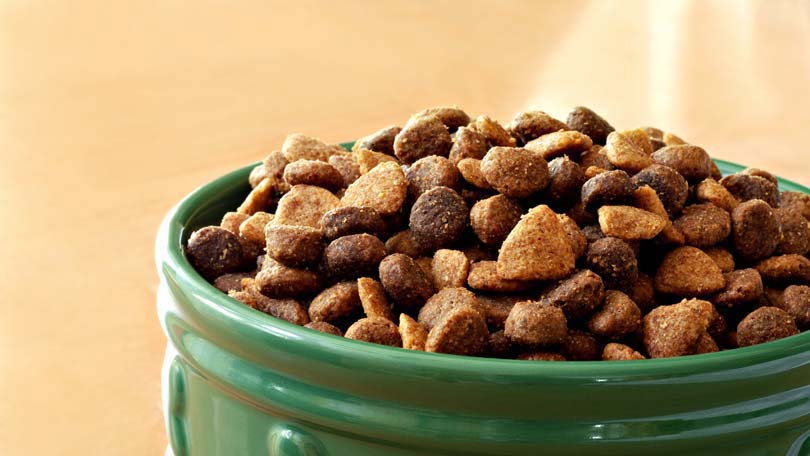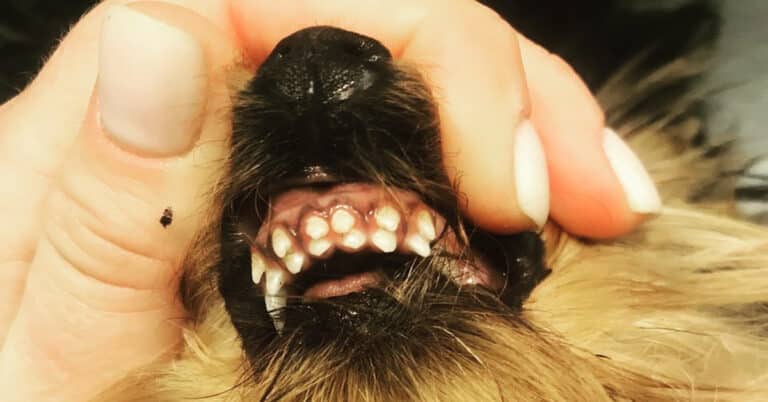Feeding A Purebred Dog
There are no real differences between feeding a purebred dog and feeding mixed-breed dogs unless you have a breed that is known to have particular digestive problems. Most purebreds and mixed breeds can be fed the same dog foods, fed at the same times, and fed similar amounts based on their size and activity levels. You are usually safe if you follow package guidelines as a starting point and then adjust your dog’s food according to whether he is gaining or losing weight. Many people own both purebreds and mixed breeds and they feed their dogs the same diet.
The exceptions to these observations occur if you have breeds that are prone to gastric-dilatation-volvulus (GDV) or bloats such as German Shepherds, Irish Setters, or some of the giant breeds such as Great Danes. These breeds typically have narrow but deep chests. During bloat the dog’s stomach fills with air and torsions or flips, cutting off the blood supply and causing the dog extreme distress. This is a life-threatening emergency. If you suspect your dog is bloating you need to take him to the vet or emergency animal hospital immediately. Surgery may be necessary to save his life. People who have these breeds are often urged to take precautions to prevent their dogs from eating too fast. They usually have their dogs rest for some time before and after meals to allow for better digestion. They avoid giving their dogs very cold water. They may soak the dog’s food in warm water so it will begin to break down before the dog eats it. If you have a breed that is prone to bloating, talk to the breeder or other people who have these dogs and find out what they recommend to avoid bloat.
Some breeds such as Boxers, Newfoundlands, Doberman Pinschers, Great Danes, German Shepherds, Irish Wolfhounds, Scottish Deerhounds, Saint Bernards, and Labrador Retrievers can be affected by cardiomyopathies which is an acquired disease due to the progressive lack of the heart’s ability to contract. The cause ofdilated cardiomyopathy is unknown. Cats can be affected by cardiomyopathy as well as mixed breed dogs, but it seems to be found more frequently in Boxers and a few other large breeds for some reason. Dilated cardiomyopathy can also occur in American and English Cocker Spaniels and in English Springer Spaniels. In some cases the cause seems to be a taurine deficiency or a deficiency of L-carnitine. Cat foods and some dog foods now add taurine to avert taurine deficiencies in pet diets. The addition of Coenzyme Q10 and/or fish oil has also helped some dogs according to some studies. Again, mixed breed dogs can have dilated cardiomyopathy, though the condition is most likely to occur in middle aged male dogs from the breeds mentioned above. If you have a breed or mix that is subject to this heart disease, be sure to feed a dog food that contains taurine and consider adding fish oil or Coenzyme Q10 (CoQ10) to your dog’s diet.
Both purebred dogs and mixes can suffer from allergies and food intolerances. Food allergies usually show up as itching and scratching, with redness in the ears and itchy paws. Your dog may scratch at his head and rub the hair off around his ears and face. He may be itchy all over. Food intolerances, on the other hand, manifest as diarrhea or other stomach upsets. Allergies and intolerances are not the same thing. If you suspect that your dog has allergies or a food intolerance, you should try to avoid feeding him the food that triggers the problem. If you are not sure which food triggers the problem, you should work with your vet to identify it. There are some improved ways of testing your dog today which can find the problem more quickly. However, in some cases you may need to do a food elimination test with your dog which can take several weeks to do correctly. But it will help you identify your dog’s food triggers so you can avoid them.
Another issue which can affect some dogs whether they are purebred or not, though it mostly affects very small dogs, is hypoglycemia. Hypoglycemia is low blood sugar. Smaller breeds and small mixed breed dogs need to be fed several small meals per day to prevent hypoglycemia. Otherwise they can become weak and lethargic and even go into shock. If your small dog seems to be weak, give him a cookie or a nutritional supplement such as NutriCal right away. Feeding your dog multiple small meals spaced out throughout the day will help prevent this problem.
There may be other individual breeds which have some specific feeding issues, but these are the most noteworthy. If you have a purebred dog you should be sure to talk to the dog’s breeder and find out if there are any issues you need to know about before you take your puppy or dog home. In most cases you can feed your dog a good quality dog food and he should do well. Just watch his weight and condition to make sure he is not gaining or losing too much weight. It’s estimated that about 25 to 40 percent of dogs in the U.S. are overweight or obese, so don’t overfeed your dog.

Having discovered a fondness for insects while pursuing her degree in Biology, Randi Jones was quite bugged to know that people usually dismissed these little creatures as “creepy-crawlies”.







